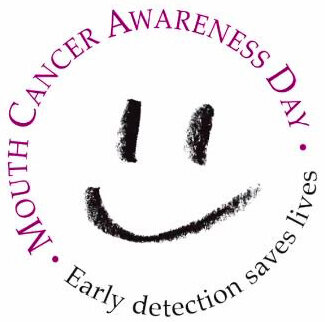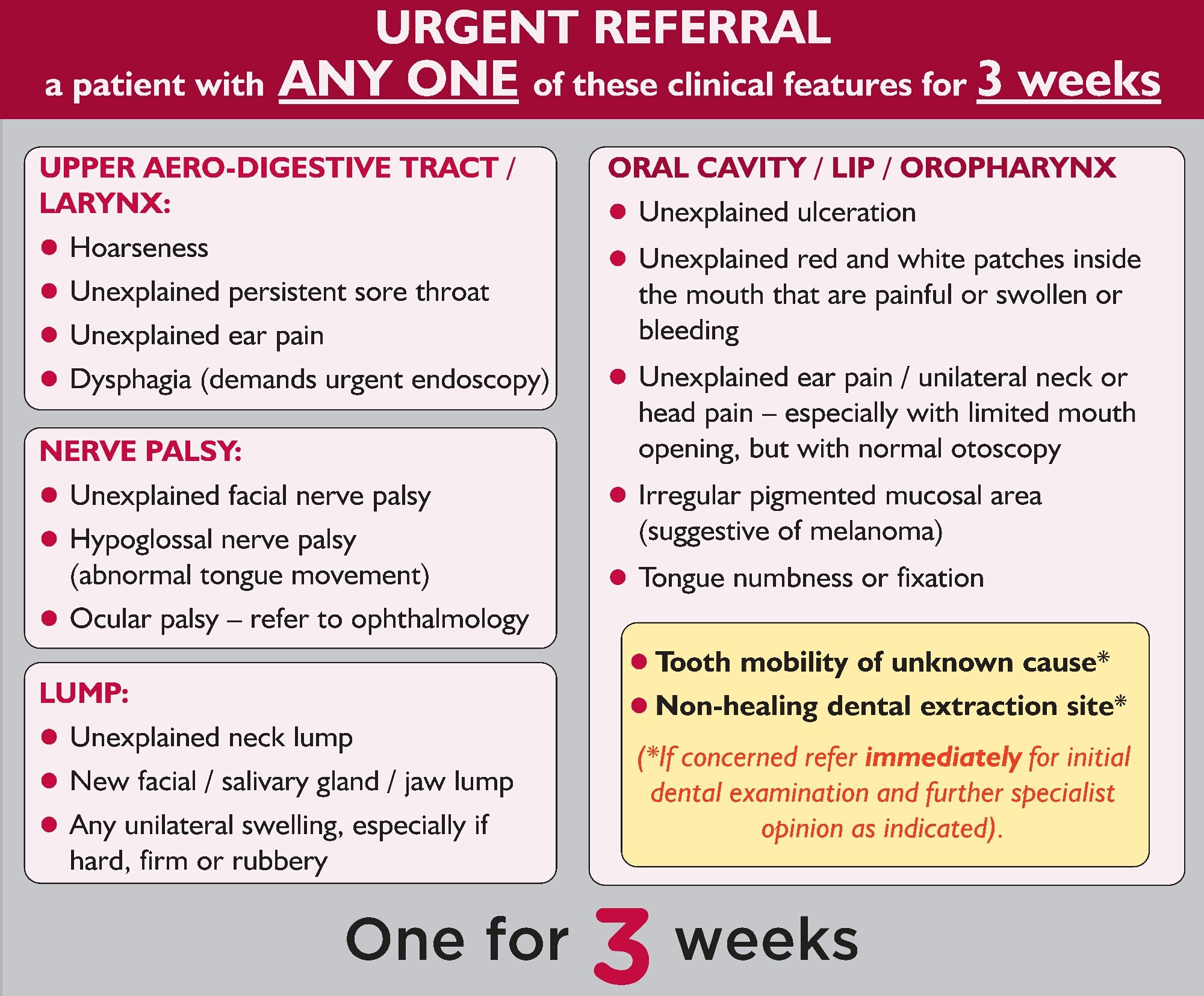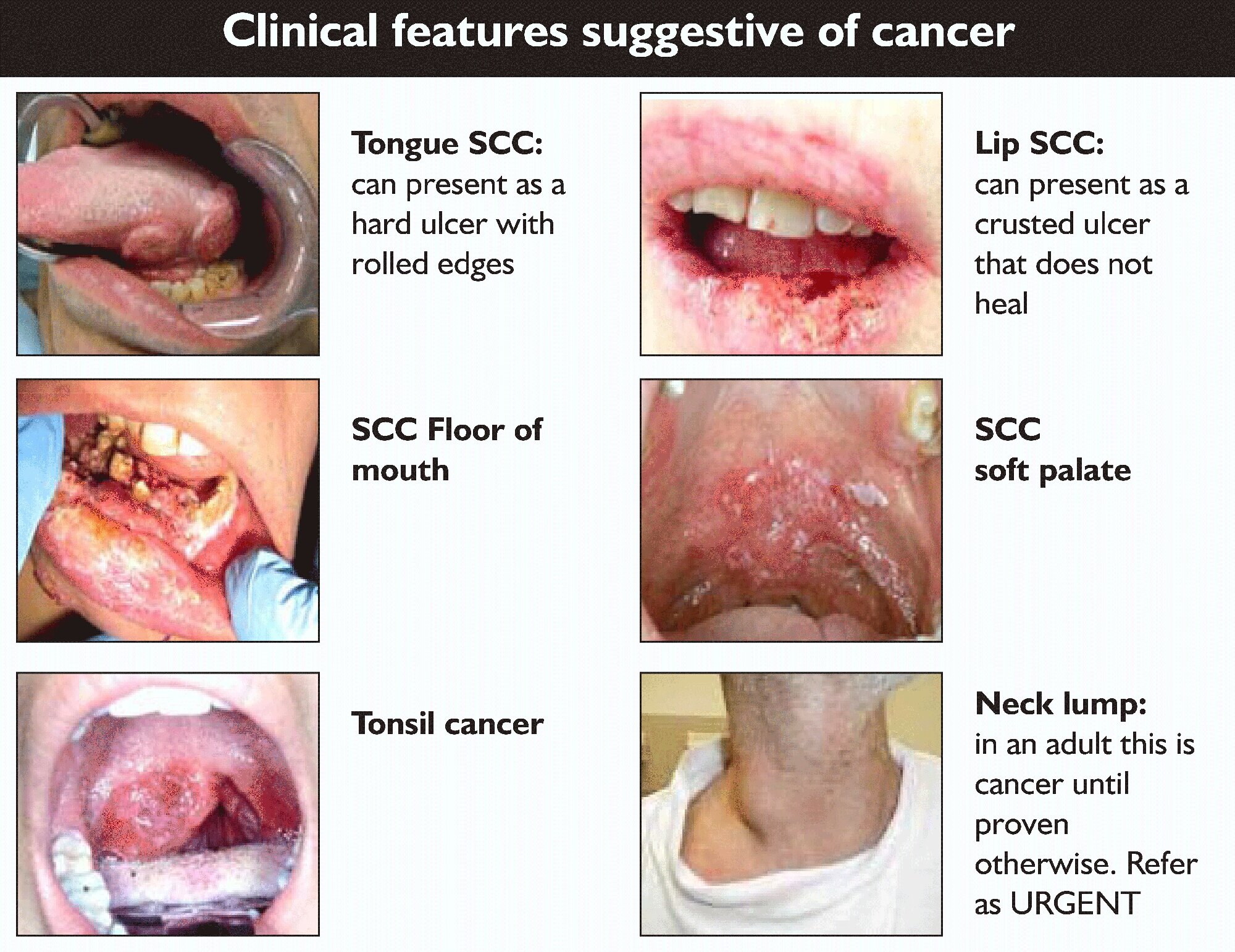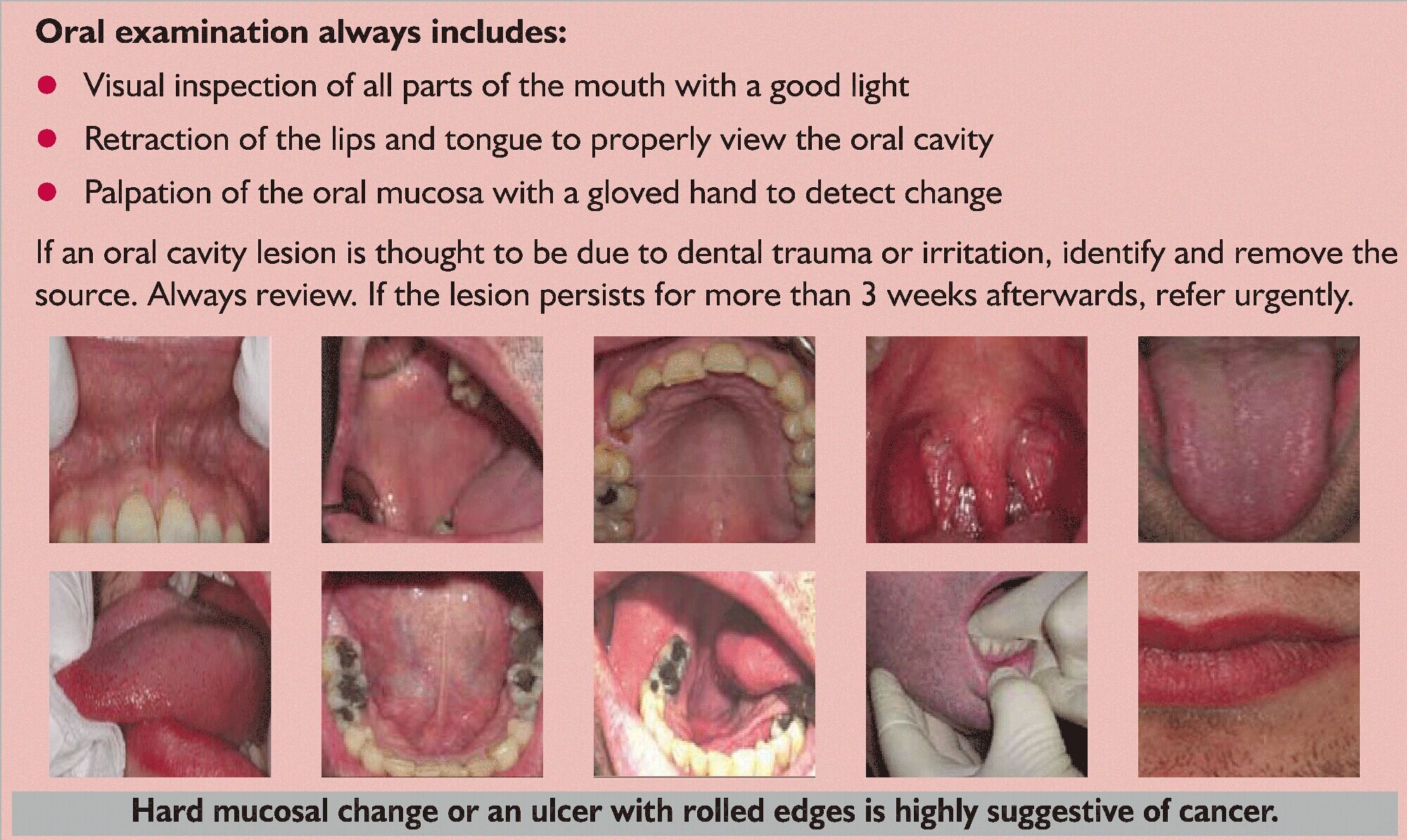Information and support for Medical Professionals around mouth, head and neck cancer
Head and Neck Cancer Referral Advice for Primary Care (Toolkit)
This is a toolkit to assist Medical and Dental Practitioners and Pharmacists to recognise clinical features that are suspicious of mouth, head and neck cancer and require urgent referral for specialist investigation. This toolkit represents the view of the NCCP, which was arrived at after consideration of the evidence available. Health professionals should take it fully into account when exercising their clinical judgement. This toolkit does not, however, override individual responsibility of health professionals to make decisions appropriate for each patient. This toolkit will be reviewed as new evidence emerges. View the PDF version of this toolkit here.
Early detection and referral save lives
Head and neck cancers involve the oral cavity, pharynx, larynx, salivary glands, nasal cavity, sinuses and middle ear. Over 700 new cases are diagnosed in Ireland each year. Laryngeal and tongue cancers are the most common.
The classical risk factors are: being male, increasing age, a history of smoking and heavy alcohol consumption. Oropharyngeal cancers are now being diagnosed in younger men and women. This group does not necessarily have all the classical risk factors and their illness may be associated with Human Papilloma Virus (HPV).
Ireland’s 5-year survival rate for head and neck cancer is just 54% as over two-thirds of patients are diagnosed with late stage disease (Stage III and IV). Excellent outcomes can be achieved for patients presenting with early stage disease.
Prevention and early detection
Everyone should have an annual dental check-up, including edentulous patients. This examination must include all oral hard and soft tissues.
While a population-based screening programme for oral head and neck cancer is not yet recommended, opportunistic assessment is strongly advocated as an integral part of routine medical and dental examinations. All medical and dental professionals should ensure that they are proficient in this critically important part of the examination.
Tobacco, alcohol and HPV are the main risk factors for head and neck cancer. Smokers should always be offered smoking cessation advice and referred on for smoking cessation therapy i.e. a combination of counselling and pharmacotherapy where appropriate
HPV vaccination should be encouraged
Skin of the face and lip should be included in this examination and will enhance early detection of skin cancers and precancers.
Referral Advice
The priority is that a patient with unexplained and persistent clinical features is referred URGENTLY for specialist opinion
It is important to find out who specialises in the diagnosis and management of MHNC in your area, as this varies regionally. Several specialties may undertake this work including ENT, Oral-maxillofacial, Oral Medicine and the Dental Hospitals
Suspicious clinical features should be described and highlighted in your referral letter. Please include patient contact details and patient understanding of the lesion in your referral.
Urgent referrals should be followed-up with a phone call to the relevant department within 24 hours.
Suspicious pigmented lesions should be referred with lesion INTACT.
Dysphagia demands urgent endoscopy by ENT.
The State of Mouth Cancer UK Report 2020/21
The State of Mouth Cancer UK Report 2020/2021 is the United Kingdom's only comprehensive review into mouth cancer. The report has been released by the Oral Health Foundation and Denplan, part of Simplyhealth, as part of November's Mouth Cancer Action Month.





